Cubikook CS-T01 Manual Knife Sharpener In-depth Review
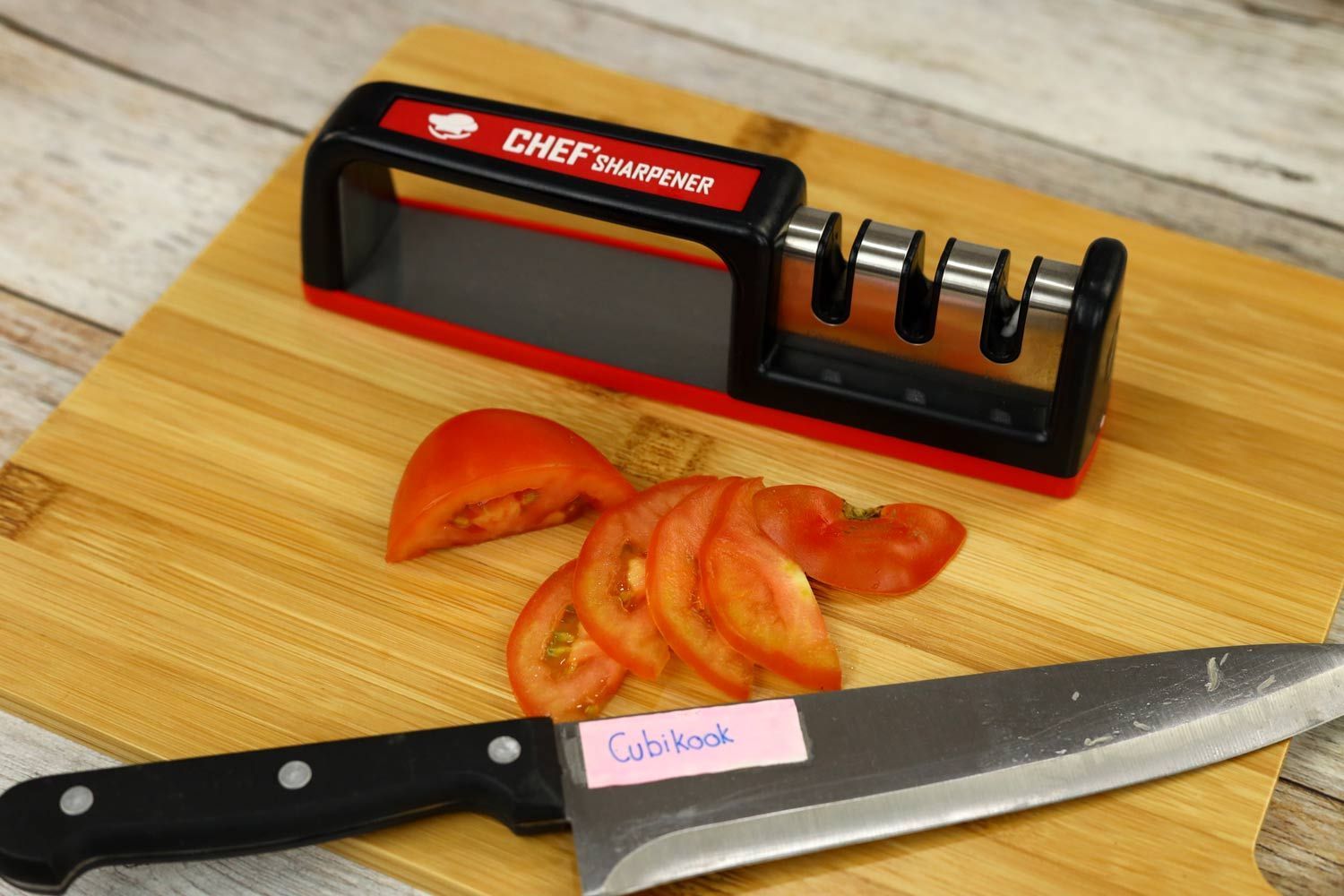
Overall Verdict
The Cubikook Chef Sharpener is a much better device than its price suggests. It’s quick, effortless to use, dependable, and offers a sharpness level that, while not exceptional, is sufficient for most kitchen tasks.
It’s also among the safest pull-through sharpeners to use, thanks to its wide flat base and a low center of gravity.
Things We Like
- Excellent stability
- Affordable price
- Consistent sharpness
- Solid and sturdy construction
Things We Don’t Like
- Small ceramic rods
- Flaky brand label
We bought our first Cubikook Chef Sharpener CS-T01 to test out in 2021. Now that it’s undergone over a year’s worth of use, we picked up a new one to compare it to and see how ours held up.
The sharpener didn’t disappoint. It was among the best performers when we first tested it, and save for a few issues with the ceramic rod and label sticker, it is still working like new.
8.0 Performance
The Cubikook performed consistently well in all four categories: speed, sharpness, material retention, and edge smoothness. As pull-through sharpeners go, this one is one of the most well-rounded options.
7.6 Sharpening Time to Cut a Lemon
The Cubikook does a quick job of bringing life to a dull blade. After only 90 seconds on the device, our sandpaper-destroyed test knife could cut through a lemon with one swift draw. This placed the Cubikook in the top tier of pull-through sharpeners in terms of speed.
Most kitchen knives should see improvements after about 30 seconds on the second slot.
8.0 Maximum Sharpness Achieved
After 6 minutes of sharpening, the test knife could cut through a fresh piece of chicken breast with the skin still on. The gristly fat under the skin kept running, but we managed to sever it with a little effort.
We tried the knife on a piece of raw beef tendon (Level 9) and it took two forced swipes, so we decided it hadn’t progressed beyond a sharpness level of 8.
8.0 Material Retention
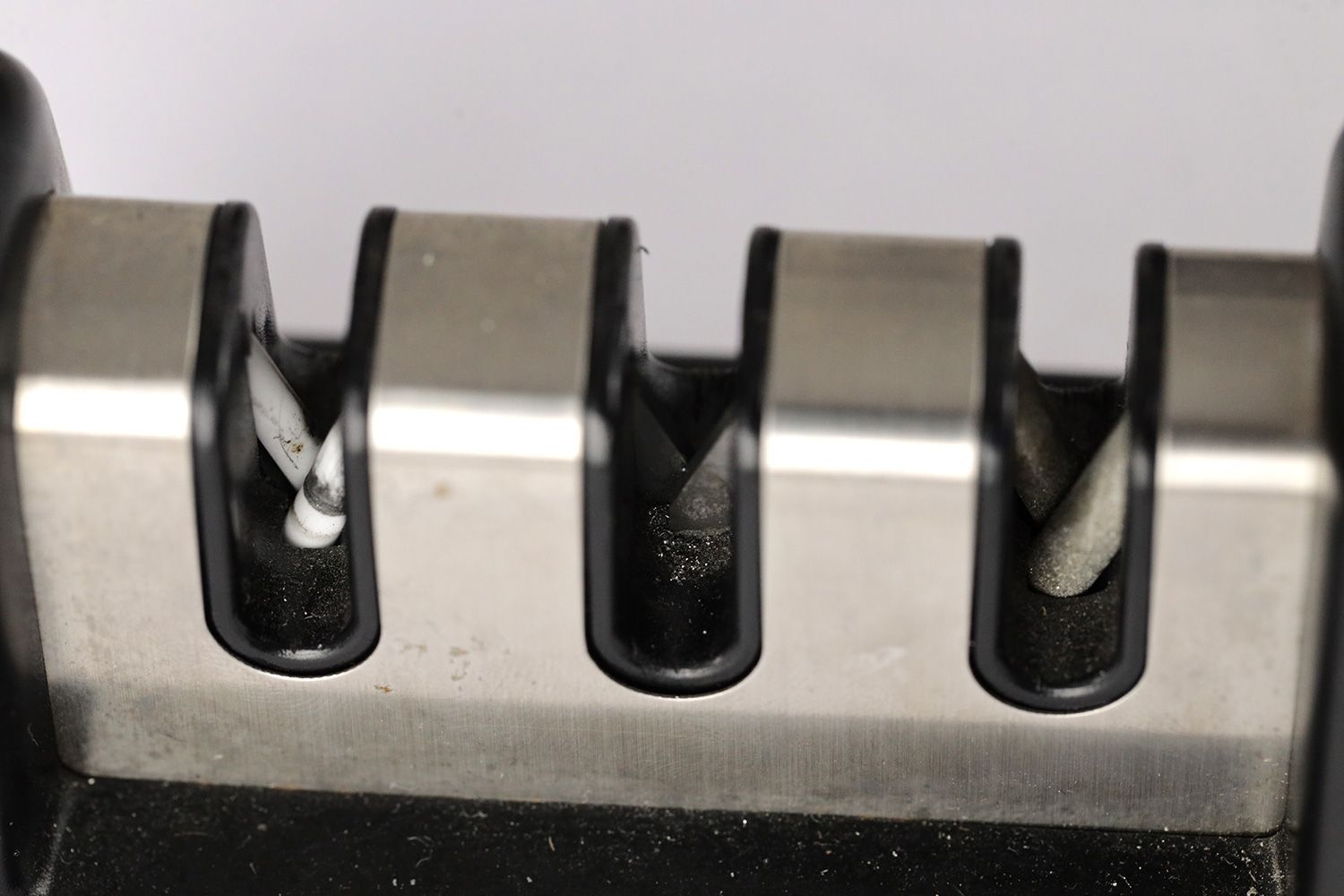


While effective, the Cubikook doesn’t remove a lot of material. This is one of the advantages multi-stage devices have over single-stage ones such as the Sunrise Pro. The first stage (diamond-impregnated rods) helps straighten the edge before you put it through the tungsten ‘peeler’ stage. Finally, the third, ceramic stage acts as a final honing step to leave your blade as smooth as possible.
The benefit of single-stage devices is that they sharpen your knife quicker. That’s possible because they simply pull off more metal at a time. That means your knife will get eaten up faster, so you have the choice between quick sharpening or long overall blade life.
8.7 Edge Smoothness
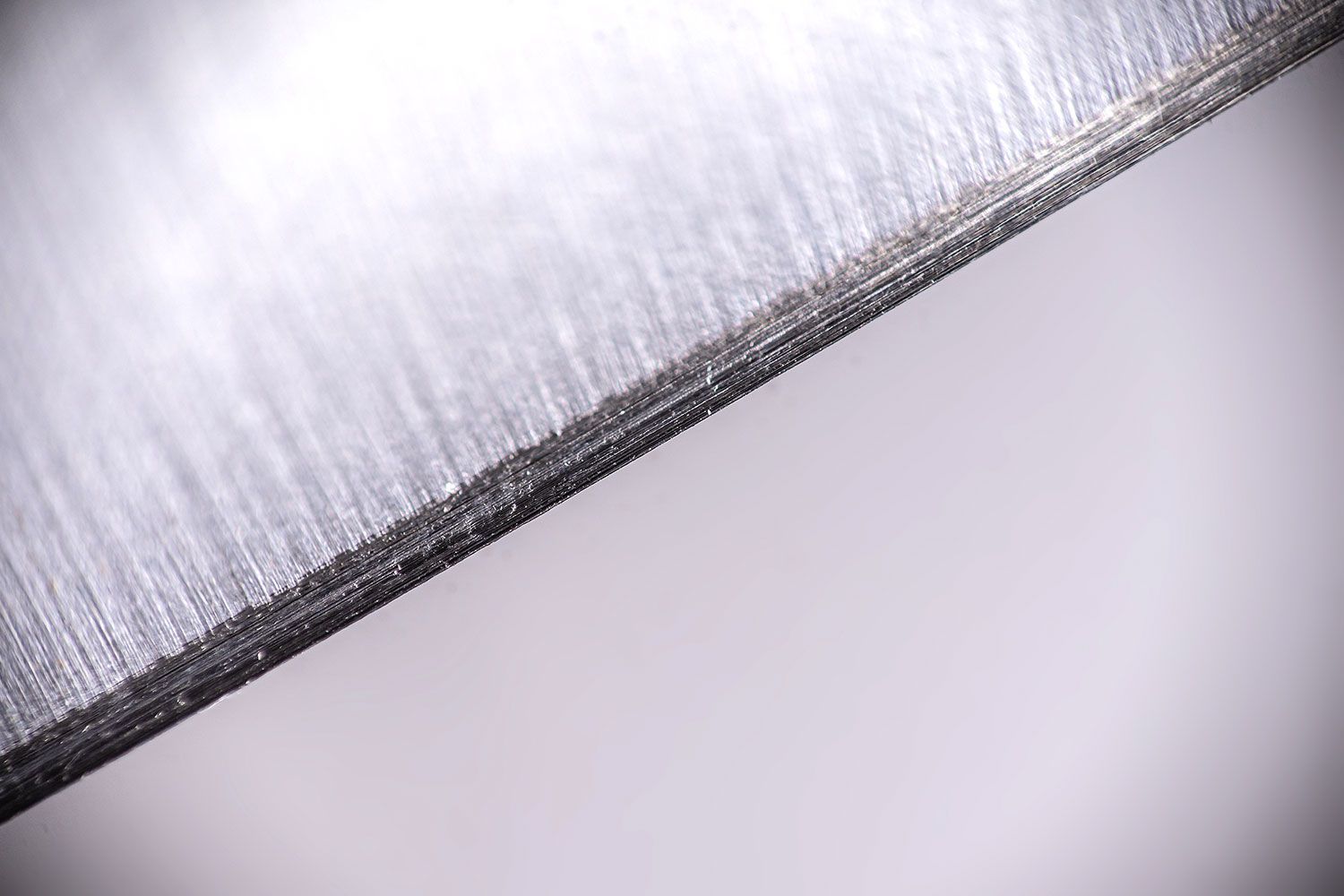
The Cubikook creates a smooth edge. It came out looking much better than many single-stage and even multi-stage versions like Smith’s 50264 or Chef’s Choice ProntoPro. In fact, we scored this device better on the edge smoothness test than any other we’ve tested to date. It creates the straightest line with barely any visible chips, while the grooves on the primary edge were also even and narrow.
This fine edge is the result of good design choices. The device’s working section is placed low and fastened tightly to the base, which helps distribute pressure evenly against the delicate edge regardless of how much force is applied. The ceramic rods in the final stage help remove any remaining burrs or metal particles, thus minimizing edge deformities.
8.5 Design
The Cubikook is heavily function-oriented — it skips the bells and whistles and focuses on keeping the device sturdy, stable, and effective to use.
In the Box
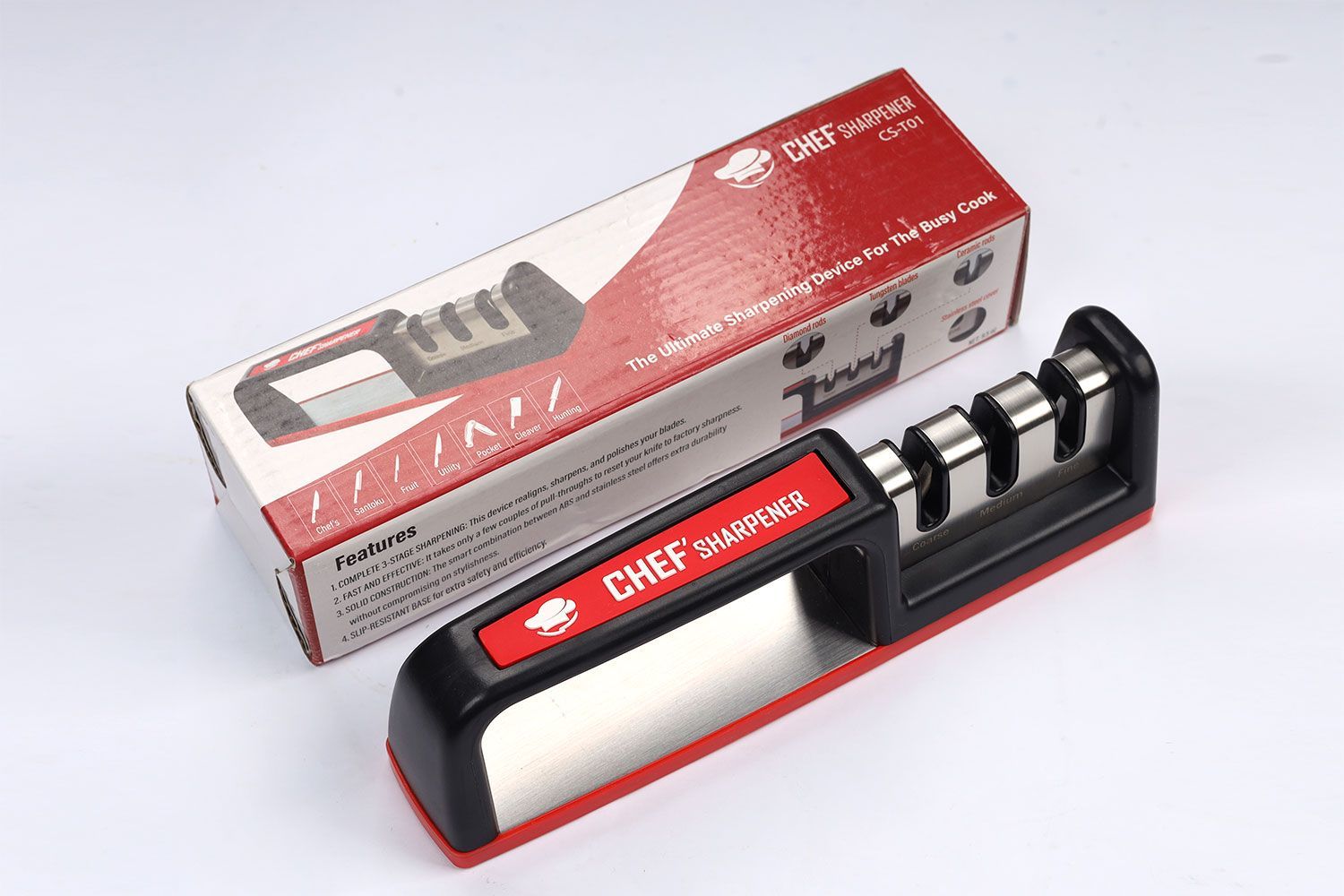
- The Cubikook sharpener
- Thank you card
The Cubikook comes in a nice box. Instead of an instruction booklet, the user guide is printed right on the box. We thought that was done to save paper, but then we also found a greeting card that doesn’t really say anything.
Dimensions
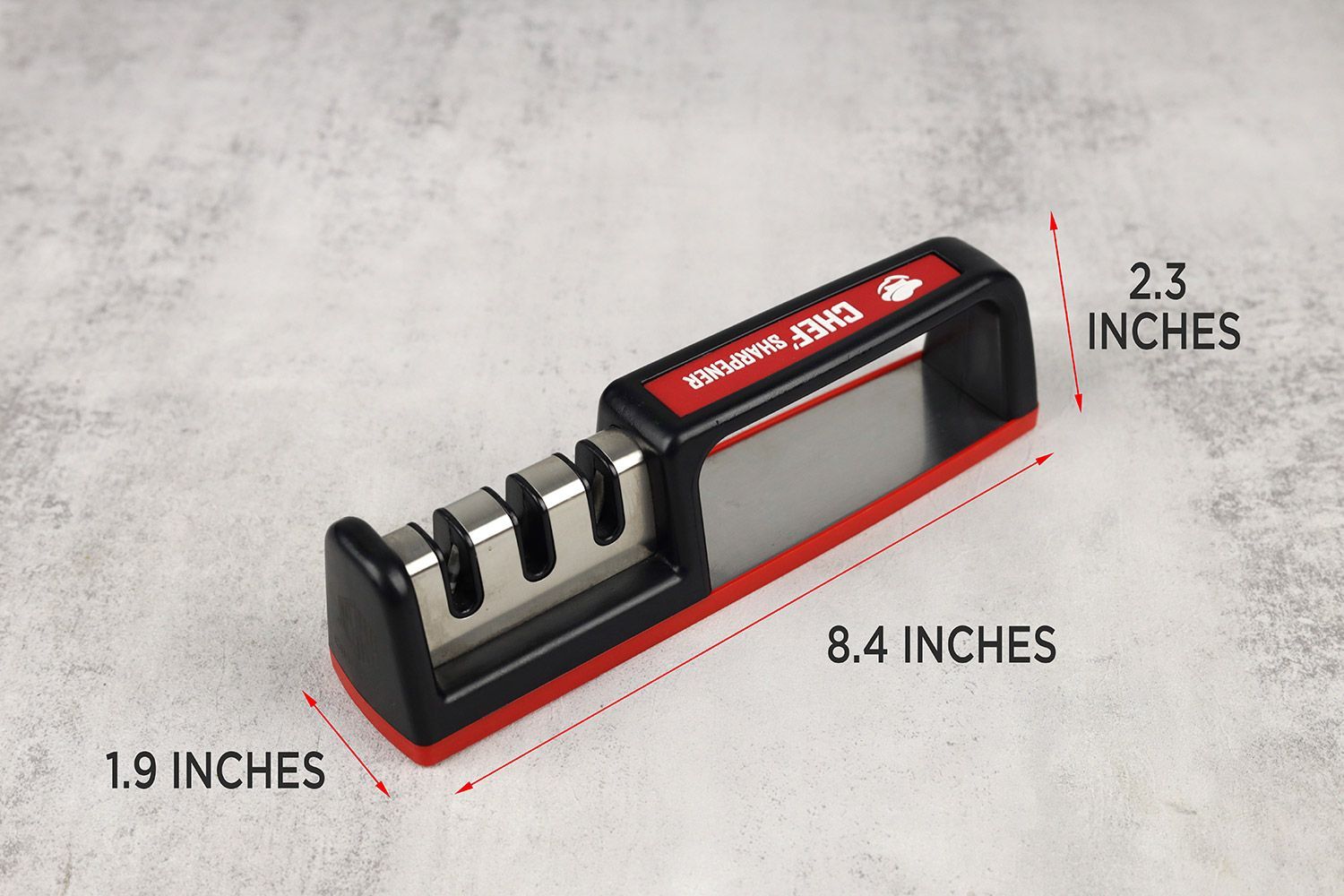
8.8 Build Quality
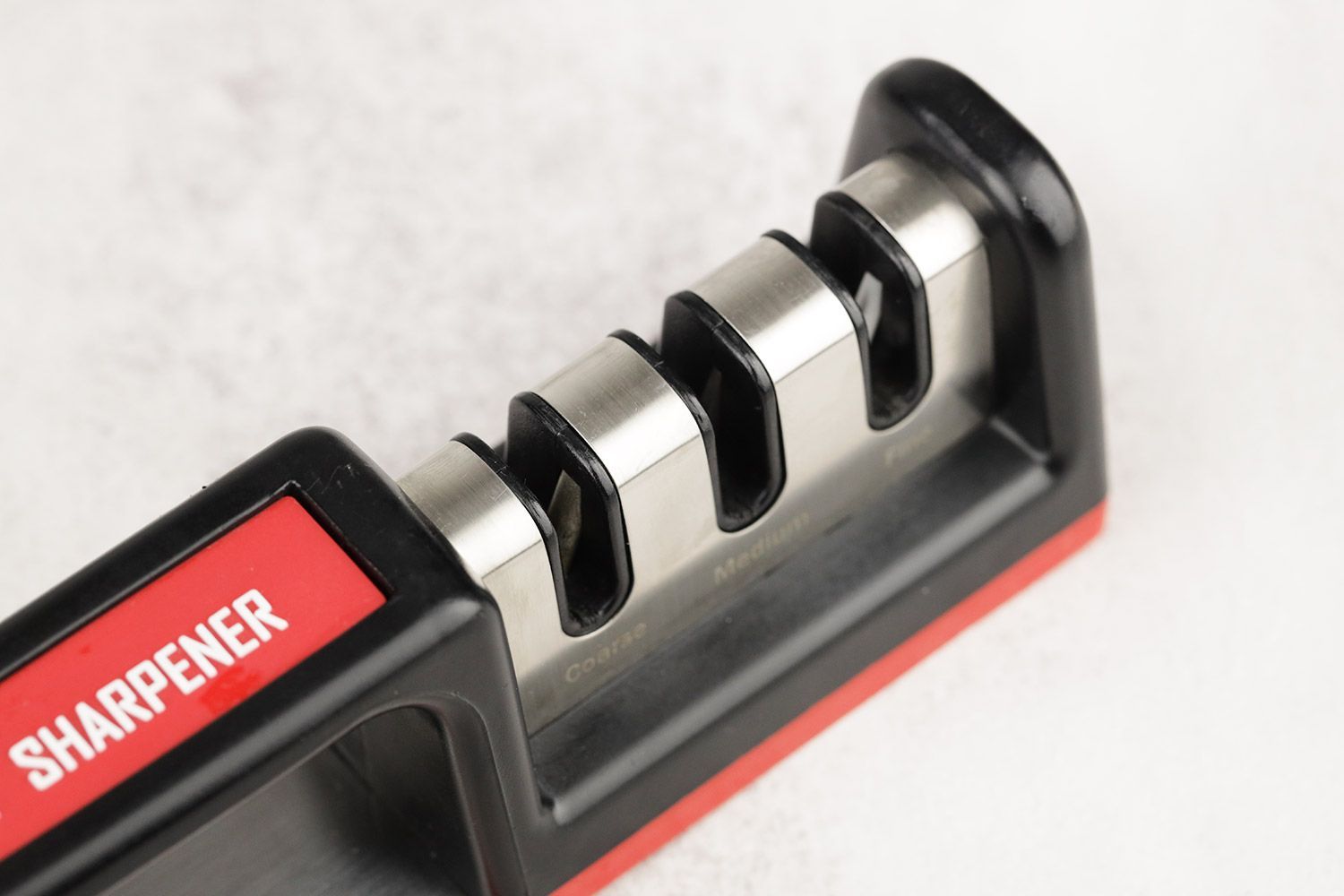
The Cubikook is easily the sturdiest handheld sharpener that we’ve tested. Its working section is secured to the base using metal screws. The device is solid, and because its parts fit together tightly, it feels like it’s one piece throughout.
The only issue is with the label. It is a strip of silicone that’s attached to the grip with glue and is starting to fall off our one-year-old device. This, however, doesn’t affect the sharpener’s functionality.
The finish is nothing to write home about, but it does ensure easy cleanup.
7.5 Grip
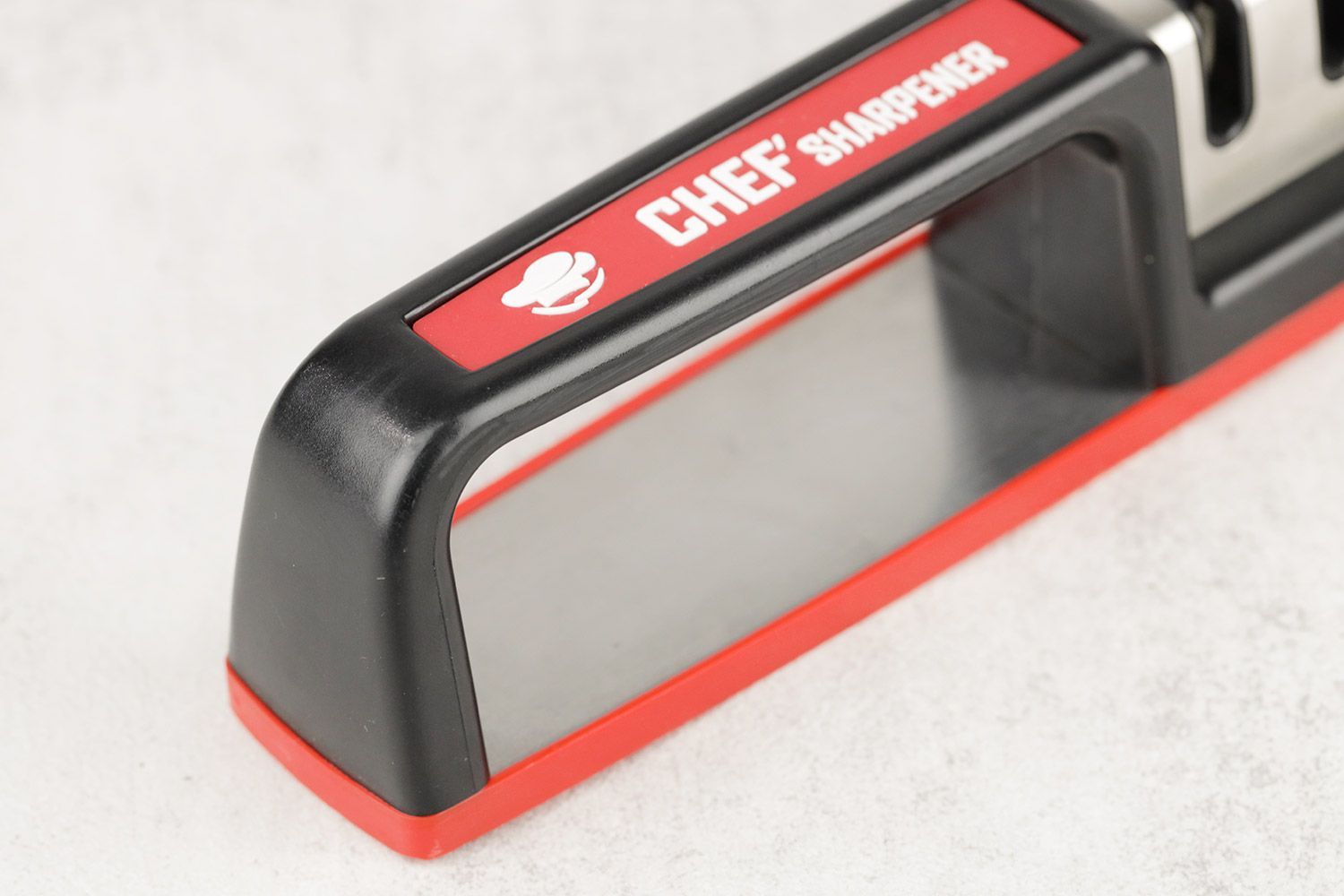
This Cubikook’s grip is very simple. It’s a thin, flat handle with the brand label on top.
It doesn’t have an ergonomic design or a velvety cover, but we’ve never had a problem maintaining a firm grip. However, we do think it could be even better if it were bulkier.
The grip is connected to the base, forming a closed loop, which further improves the device’s stability. As a small plus, you can hang it on a rack or hook for quick access.
Working Section
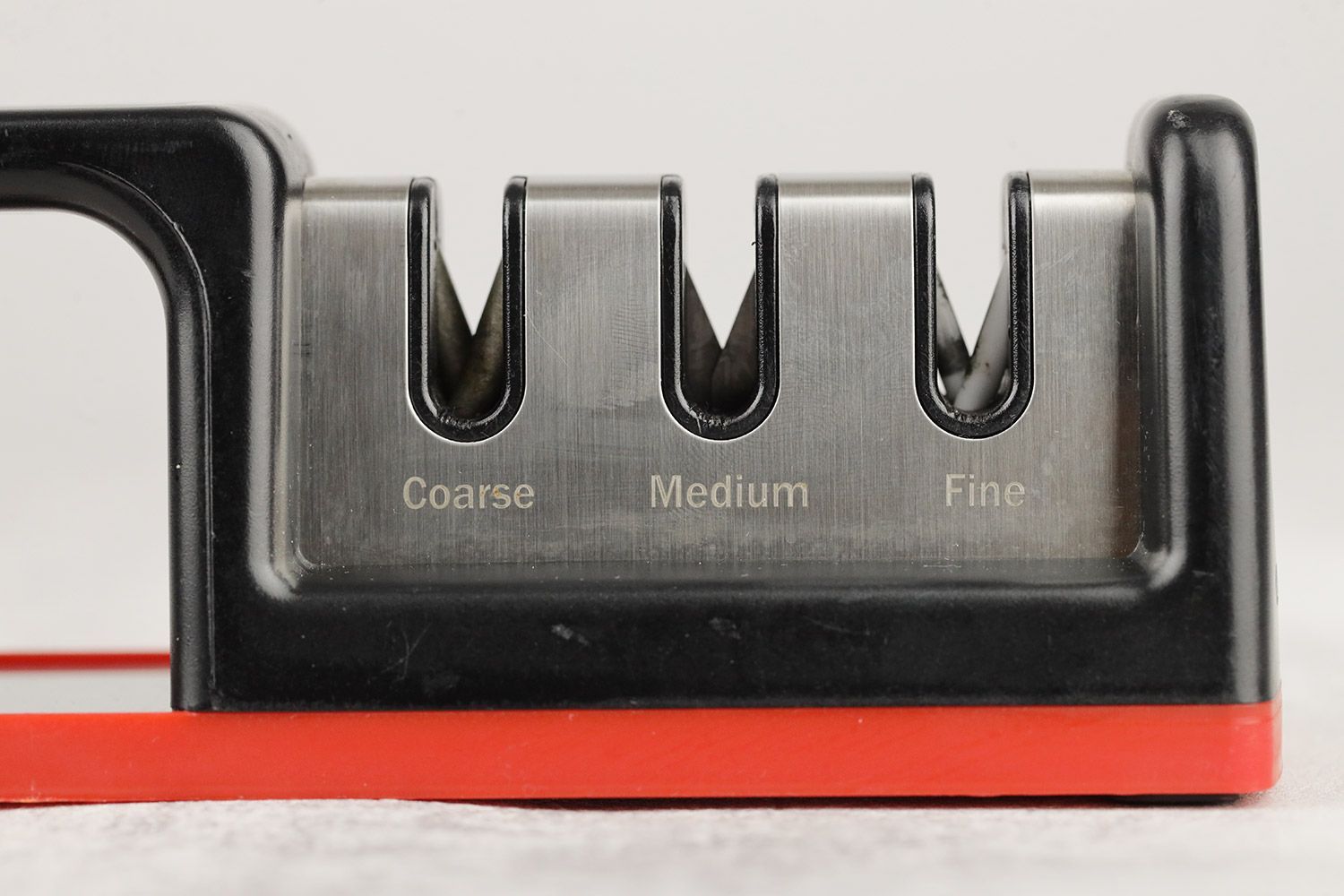
The device has one slot with diamond rods that shape and straighten the edge, one with tungsten bars that remove burrs and small amounts of metal, and one with ceramic rods for honing.
The working section is secured to the base with screws and is technically detachable. However, you’d have to remove the silicone feet before you can take it apart. Also, the manufacturer doesn’t seem to sell spare parts online. We find it a pity that the whole device has to be discarded once the abrasives wear down, even though the other parts are still in perfect condition.
Base
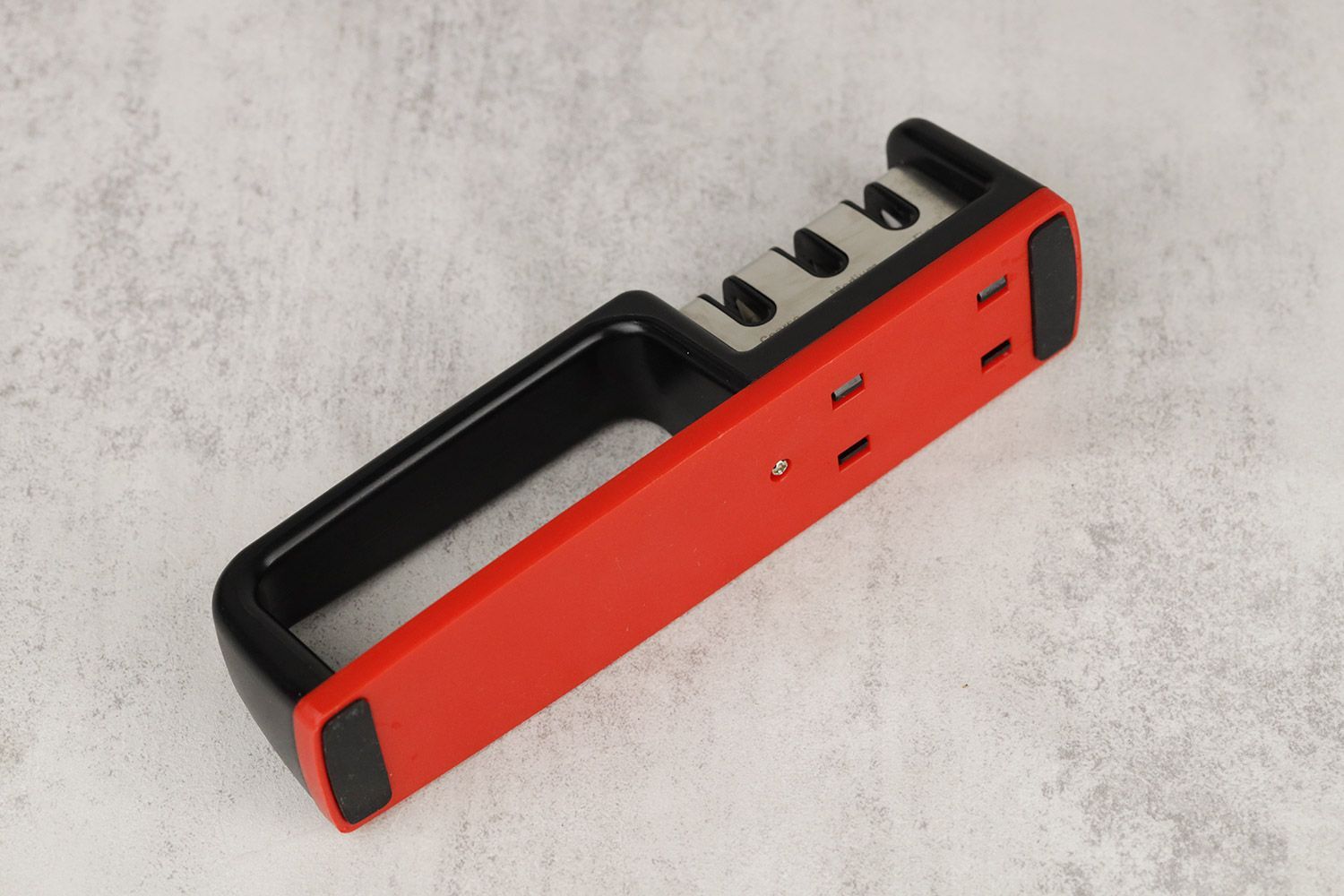

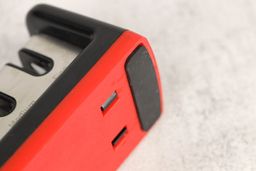
The Cubikook has a flat base with two silicone pads underneath to keep it in place. It isn’t particularly large, but because the device is modest in height and tapers at the top, the base area is more than enough to keep it from wobbling. We love that the design is simple but still very effective in ensuring stability.
9.4 Ease of Use
The Cubikook has a straightforward design with a flat base, a sturdy working section, and an intuitive slot arrangement. Everything supports a safe and easy sharpening experience. It’s the best handheld sharpener for those with weak or shaky hands.
10 Slot Arrangement
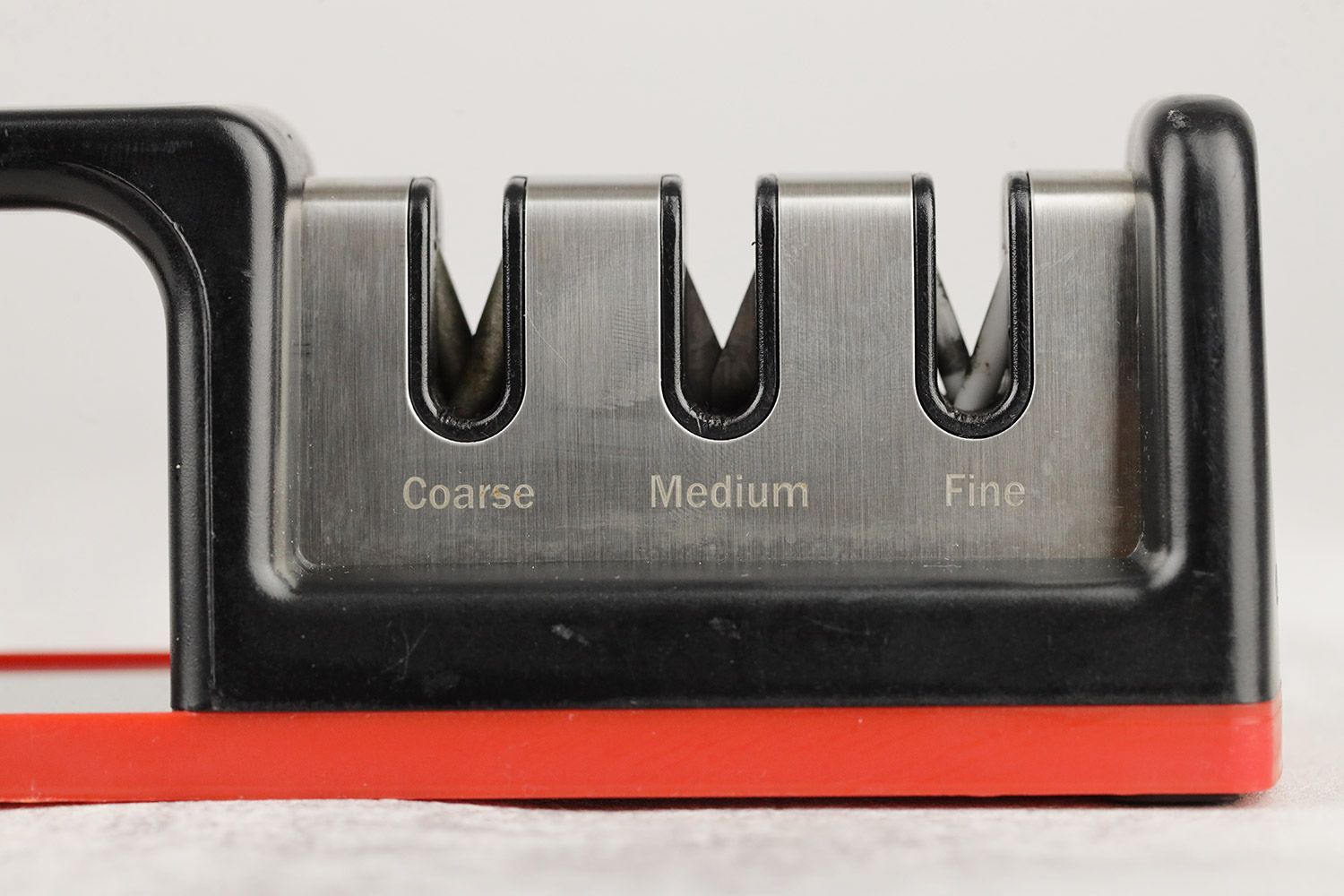
With one single working angle and the coarseness printed at each slot, the Cubikook Chef’ Sharpener is intuitive. Swipe through the slots until the knife is sharp — you really can’t go wrong with it. The slot labels are only embossed on one side, suggesting a right-handed orientation, but it functions just as well for southpaws. You just need to remember which slot is which.
9.5 Insertion
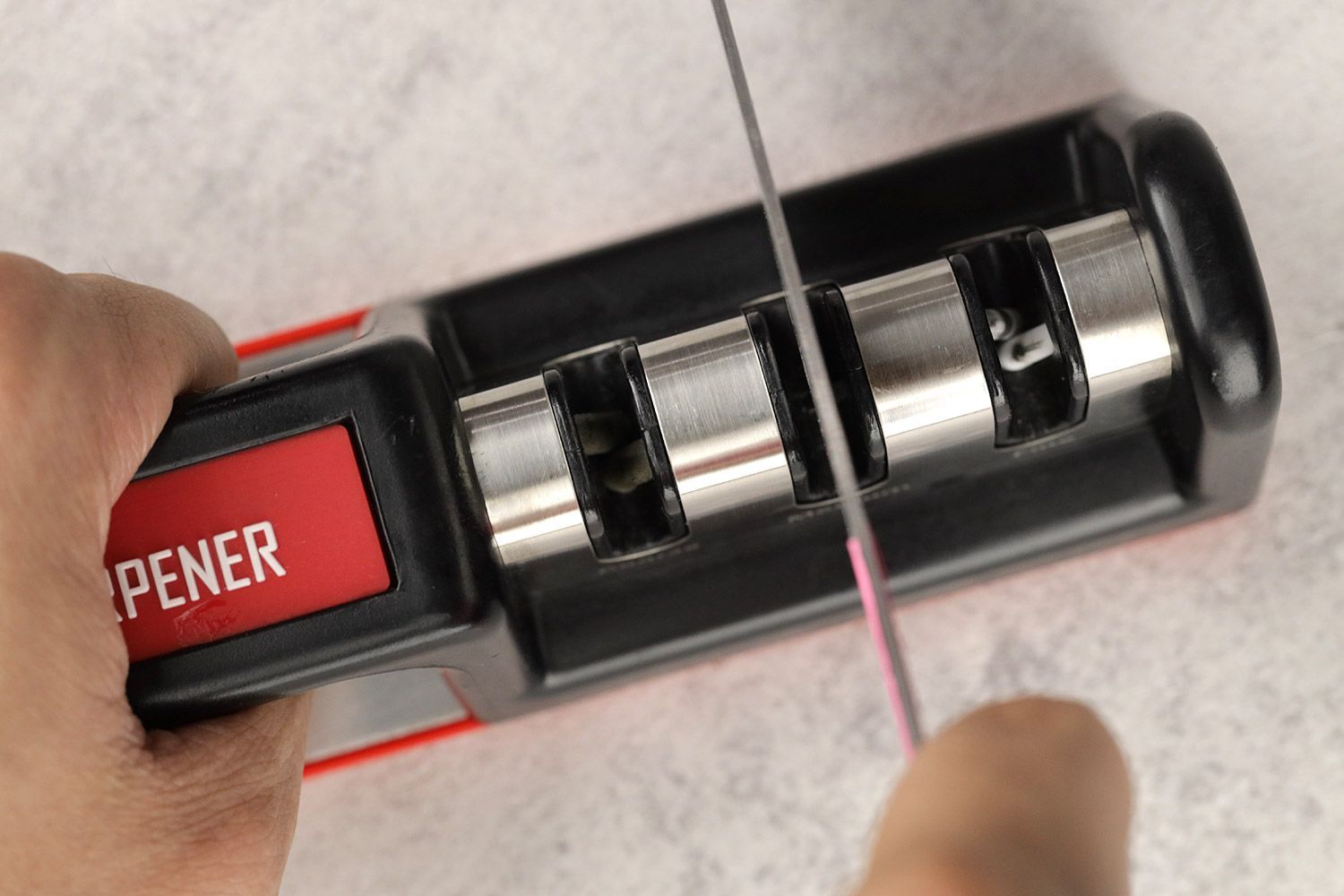
The Cubikook has some of the widest slot openings out of all the devices we tested. Granted, you can still cut into the walls if you have trembling hands or try to insert the blade too fast, but overall, insertion is pretty effortless and doesn’t require much concentration.
9.0 Pulling Through
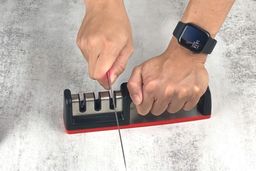
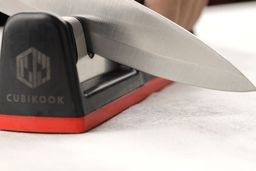
The Cubikook’s stability and sturdiness make pulling a blade through its slots a breeze. The smaller sharpening rods mean their cradle is rather light, but not loose — at least not when the device is still new.
Within a few months of heavy use, one of the two ceramic rods unfastened itself and started spinning whenever we pulled a blade through. This happens on both of the devices we have, so we’re not quite sure if it’s a feature or a fault in design.
We like that the sharpening slots are thin and the U-shape cutouts that frame them sit far below where the rods meet, thus staying out of the blade’s path. We can pull a whole knife through quickly, place reasonable pressure on it, even with the tip downward, and still never cut into the plastic.
9.5 Stability on a Clean Surface
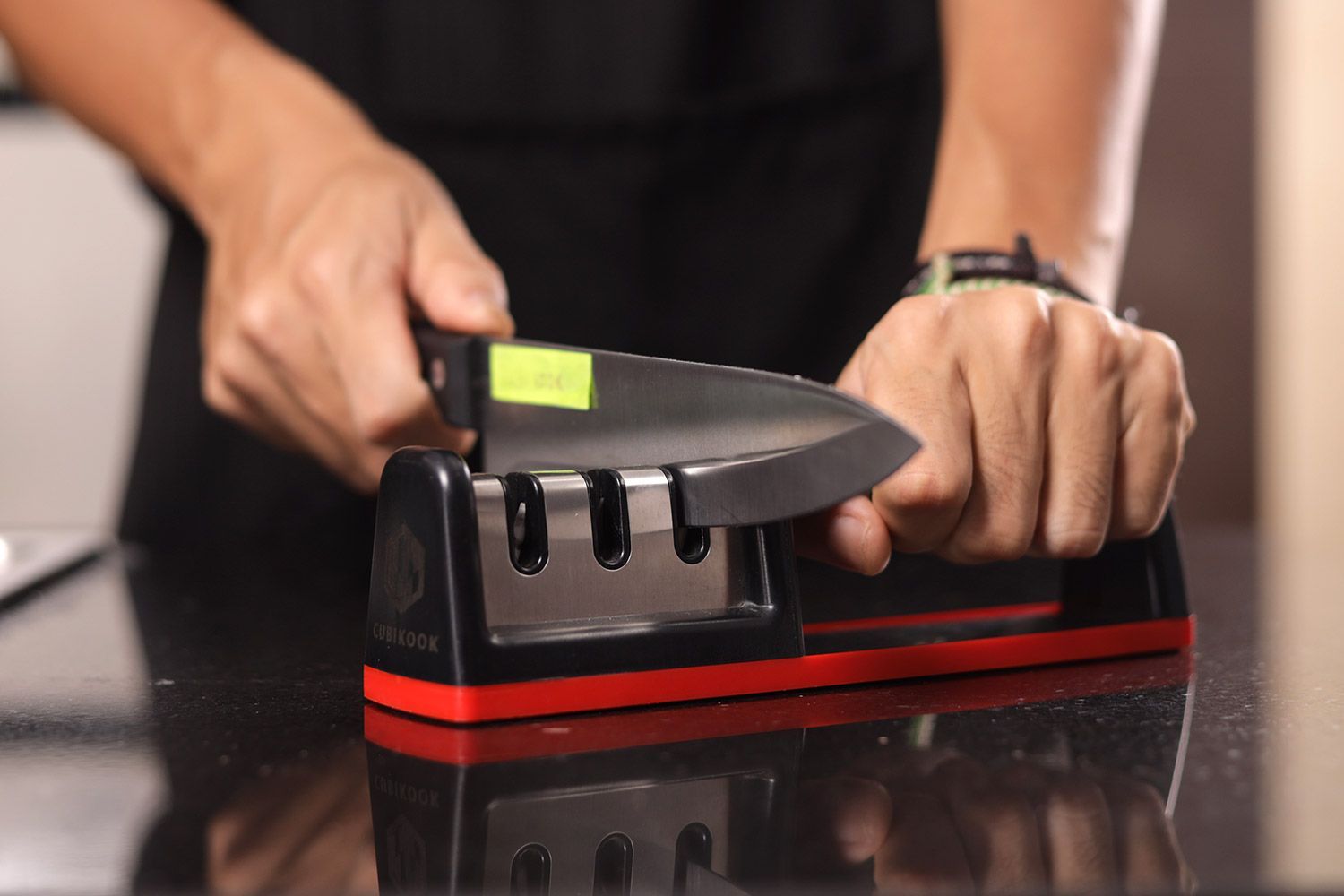
The Cubikook has a low center of gravity, with its working section connected directly to its flat base. The two silicone pads underneath further aid in keeping it in place. It didn’t wobble or slip even when we deliberately applied more pressure than necessary.
8.0 Stability on a Wet and Dirty Surface
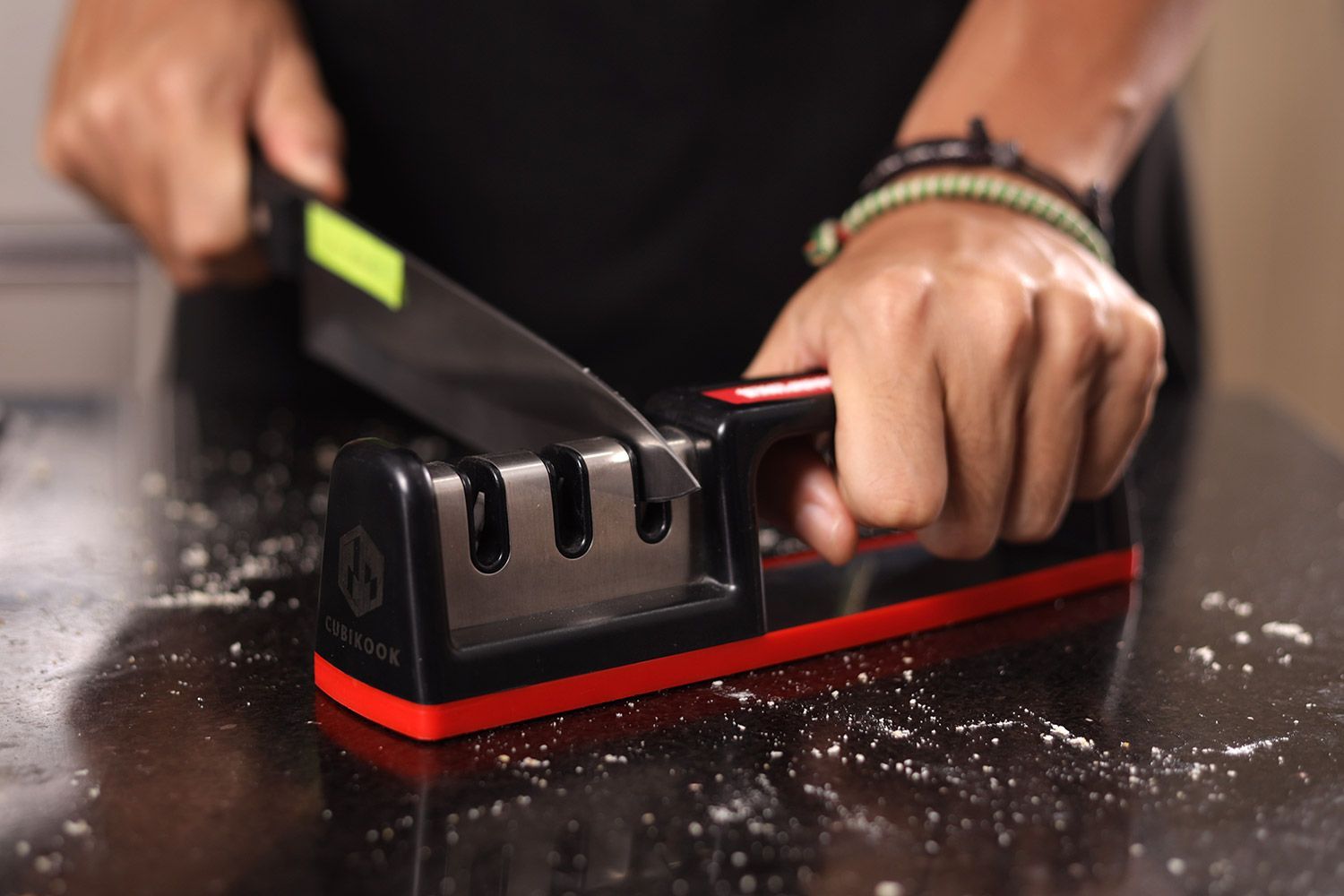
The Cubikook stands shoulder to shoulder with the Chef’s Choice ProntoPro in this test and beats the others by leaps and bounds. It slipped but never came close to rolling or flipping. Again, a wide base and a working section placed low to its center of gravity are the recipe for success.